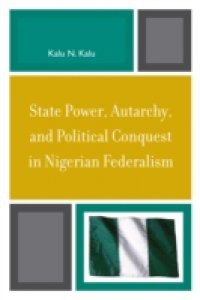This book shows how specific historical events and societal forces within Nigeria transcend the choices its political leaders have made to influence the course of the state's political development. Kalu N. Kalu describes a variety of factors that have contributed to the challenges facing state-building and political institutions in Nigeria. Chief among them are the nature of interest aggregation, the dynamics of conflict, and the patterns of state intervention in matters dealing with secularism, distributive politics, economy, security, and autonomy. Kalu succeeds in constructing a more organic concept of political development in Nigeria by creating a model based on rentier politics that captures the critical relationship between state power and economy. By doing so, he goes beyond current scholarship about Nigeria and demonstrates the need for a restructuring of its institutions, offering insight into an enduring narrative that continues to shape Nigerian politics.



















